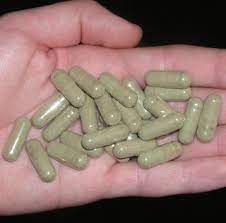THC-0: The Synthetic Cannabinoid
THC-0: The Synthetic Cannabinoid Exempt from the 2018 Farm Bill and Possibly Running Afoul of The Synthetic Drug Abuse Prevention Act
In the ever-evolving world of cannabinoids, THC0 has emerged as a unique synthetic cannabinoid, distinct from traditional THC. Not only is it noteworthy for its intense effects and legal gray area under the 2018 Farm Bill, but it also raises concerns regarding its compliance with The Synthetic Drug Abuse Prevention Act. In this blog post, we'll delve into THC0's characteristics, its exemption from the 2018 Farm Bill, and its potential violations of The Synthetic Drug Abuse Prevention Act.
Understanding THC0:
THC0, also known as THC-O or THC-O-acetate, is synthesized from delta-9-tetrahydrocannabinol (Δ9-THC), the primary psychoactive compound in cannabis. This synthetic compound stands out for its distinct effects, which are significantly more potent and can include intense psychedelic experiences, vivid hallucinations, and altered perceptions.
The 2018 Farm Bill:
The 2018 Farm Bill legalized the cultivation and commercial production of industrial hemp and products containing hemp-derived cannabinoids in the United States, as long as they contain less than 0.3% Δ9-THC. This critical legislation doesn't address synthetic cannabinoids like THC0, which are engineered in laboratories and can produce different and potentially more potent effects.
Violation of The Synthetic Drug Abuse Prevention Act:
The Synthetic Drug Abuse Prevention Act is a U.S. federal law that aims to control and regulate synthetic substances that mimic the effects of controlled substances. Synthetic cannabinoids like THC0, given their intense psychoactive effects, could potentially fall within the purview of this act, especially if they are marketed and sold in a manner that suggests they are intended for human consumption. Violations of this act can carry significant legal consequences.
Legal Implications:
THC0's legal status remains unclear, with regulations surrounding synthetic cannabinoids being more complex than those governing natural cannabis compounds. While THC0 may not fall under the 2018 Farm Bill's Δ9-THC restrictions, its potential violation of The Synthetic Drug Abuse Prevention Act emphasizes the importance of staying informed about the legal landscape regarding synthetic cannabinoids.
Conclusion:
THC0, as a synthetic cannabinoid, brings forth a host of legal and regulatory challenges. Its unique properties, intense effects, and potential violation of The Synthetic Drug Abuse Prevention Act highlight the complexities of governing novel substances in the ever-expanding world of cannabinoids. Users, producers, and regulators should remain vigilant and informed about the legal implications of THC0 and other synthetic cannabinoids.
Disclaimer: This blog post is intended for informational purposes and does not constitute legal advice. To fully understand the legal implications of THC0 and other synthetic cannabinoids, consult with legal professionals and stay up-to-date with local, state, and federal regulations.









Share On: